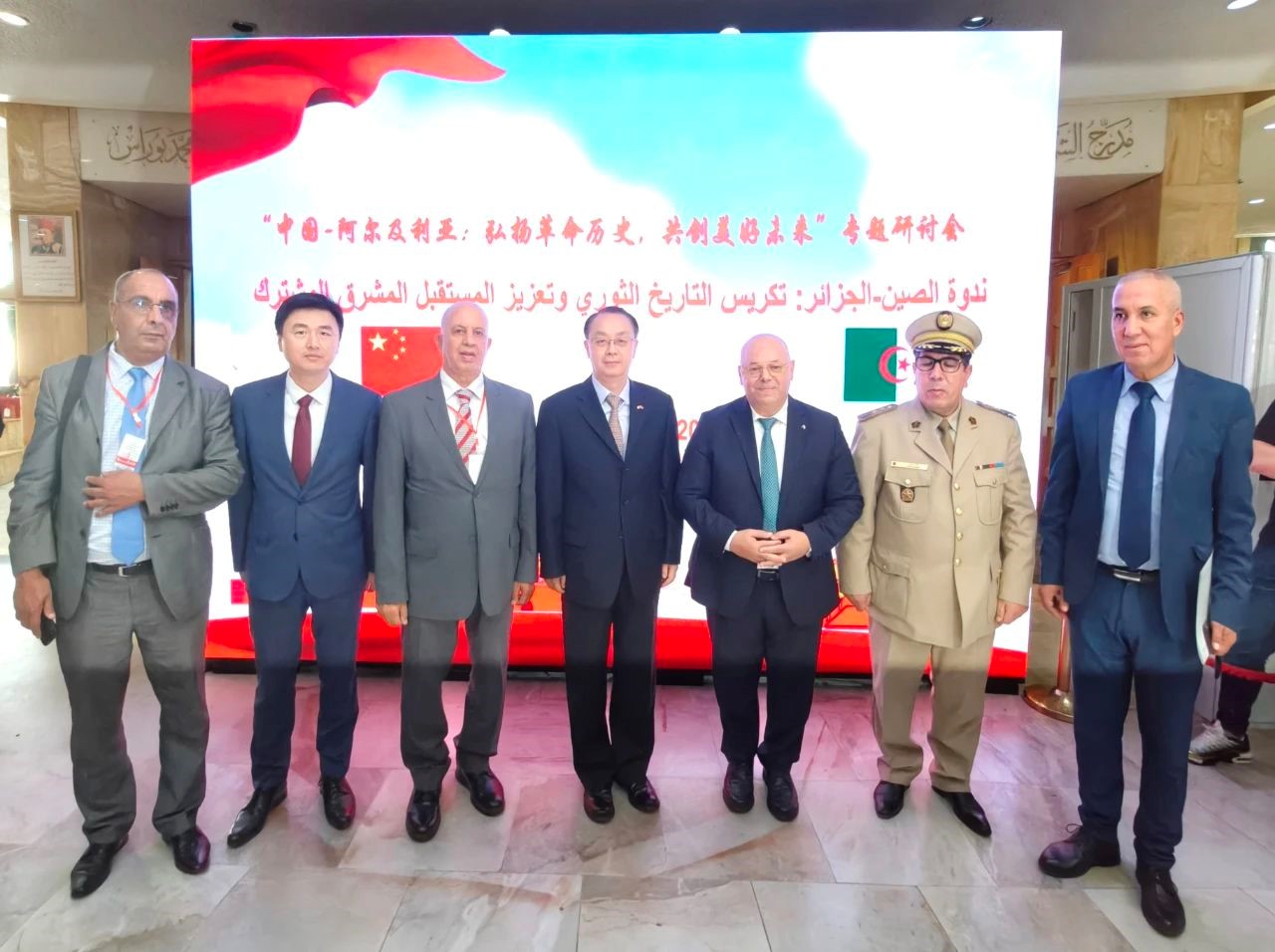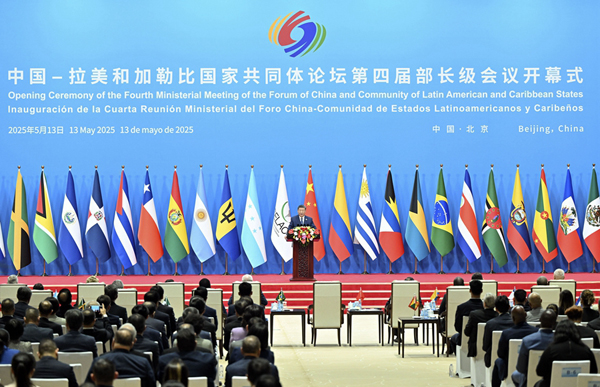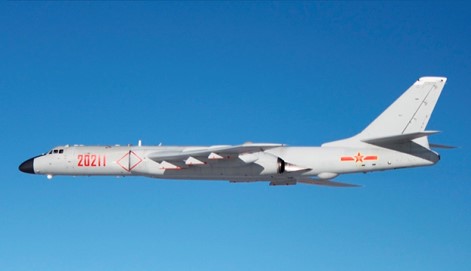
A State Visit by Kazakhstan’s President Demonstrates China’s Increasing Influence in Central Asia
A State Visit by Kazakhstan’s President Demonstrates China’s Increasing Influence in Central Asia
Introduction
Kazakhstan President Kassym-Jomart Tokayev’s recent visit to the People’s Republic of China (PRC) on September 10-12 was not merely a state visit, but also signaled a new era in bilateral relations between Kazakhstan and China. During his visit, Tokayev met top officials of the Chinese Communist Party (CCP), including CCP General Secretary Xi Jinping, Premier Li Keqiang, and Li Zhanshu, the Chairman of the Standing Committee of the National People’s Congress. Tokayev also stopped in Hangzhou, where he visited the headquarters of the Alibaba Group and spoke with founder Jack Ma, as well as the new chairman and CEO Daniel Zhang (Sina Tech, September 12). The September visit has symbolic meaning for both Xi and Tokayev as they prepare for a new stage of their partnership—in the same year as the 70th anniversary of the founding of the PRC, and the 30th anniversary of Kazakhstan’s independence.
A New High Point in Kazakh-Chinese Relations
This visit and the events surrounding it produced numerous achievements for both sides. On a personal level, Kazakh President Tokayev has impressed Chinese audiences with his language ability. With his strong foreign service background and previous work experience in China and Russia, Tokayev can speak Russian, Chinese, and English. In an exclusive September 9 interview with China Central Television (CCTV), he spoke in fluent Chinese (CCTV, September 9), which raised a lot of positive attention in China prior to his trip.
The most important achievement of Tokayev’s visit was a bilateral agreement to develop a “permanent comprehensive strategic partnership” (永久全面战略伙伴关系, yongjiu quanmian zhanlue huoban guanxi) (Xinhua Net, September 12). In a joint statement, both leaders vowed to build their relations in the context of “an eternal comprehensive strategic partnership in the spirit of mutual benefit, unshakable friendship, mutual trust and comprehensive cooperation in front of common challenges” (Embassy of the Republic of Kazakhstan in China, September 15). In addition, the two leaders attended a signing ceremony for several bilateral cooperation agreements on economy, security, and technology (Embassy of the Republic of Kazakhstan in China, September 12).
Although Kazakhstan is the largest country in Central Asia, it needs to diversify its economy and work with rising neighbors to maintain its growth. The PRC is one of Kazakhstan’s most significant foreign trading partners, accounting for 15.7 percent of the country’s total trade. China has invested roughly $20 billion in joint projects, and is the fourth largest source of foreign direct investment in the Kazakh economy (The Astana Times, September 15). Working closely with China will be key for Kazakhstan’s economic and technological development, particularly in the fields of 5G, big data, and blockchain. Deals made during Tokayev’s visit will also boost Kazakhstan exports, as with an agreement to soon begin the export of dry camel milk concentrate to China (Sina Financial News, September 17).

By deepening its cooperation with China, the Kazakh government will be able to maintain its economic growth and geopolitical standing in Central Asia. Specifically, Kazakhstan plans to strengthen its cooperation with China under the framework of the Belt and Road Initiative (BRI) on issues such as trade, infrastructure, energy, 5G, science and technology research, and people-to-people and cultural exchanges (Xinhua Net, September 11). Also, by taking advantage of the construction transport corridors under the framework of the China-driven 21st Century Silk Road, Kazakhstan will be able to gain easier access to markets in Asia, Europe, and the Middle East.
Developing “Comprehensive Cooperation” Between Kazakhstan and the PRC
Xi first introduced the concept of the BRI when he visited Kazakhstan in 2013, and the PRC has now taken further steps to deepen its comprehensive partnership with Kazakhstan through several mechanisms. First, “all-around cooperation” (全方位合作, quan fangwei hezuo) with Kazakhstan means combining the Chinese Silk Road Economic Belt with Kazakhstan’s own economic “Bright Path” program (Xinhua Net, September 11). Second, “the spirit of mutual benefit, unshakable friendship, mutual trust” (睦邻友好、互惠互信精神, mulin youhao, huhui huxin jingshen) reflects Kazakhstan’s and China’s mutual respect for each other’s national interests, and confirms the inviolability of borders and the principle of territorial integrity (The Astana Times, September 15). Third, the “comprehensive cooperation before common challenges” (全面合作应对共同挑战, quanmian hezuo yingdui gongtong tiaozhan) means that the two countries will continue to work together to strengthen stability and maintain regional security through multilateral organizations such as the United Nations, the Conference on Interaction and Confidence-Building Measures in Asia (CICA), and the Shanghai Cooperation Organization (SCO) (The Astana Times, September 15).
The SCO and the Central Asia Regional Economic Cooperation Program (CAREC) are among the most important multilateral institutions for China’s outreach in Central Asia. Xi and Tokayev have both stated clearly that the SCO is going to play a more active role in jointly combating the “three evil forces” (terrorism, separatism, and extremism), maintaining regional security, and opposing alleged “external interference” (Xinhua News, September 11). Since Russia is not a member of CAREC, this program has become a valuable platform for China to showcase its geopolitical influence and economic power in Central Asia. Together with the BRI, CAREC plans to create railway links that will connect China’s Ürümqi city to Kazakhstan’s Almaty, and ultimately terminate at Iran’s capital city Tehran. If the project is successful, China would be able to offer a compelling alternative to Russia’s historic influence in the region (Xinhua Net, February 21).
Disagreements and Internal Dissent in Kazakhstan
In the joint statement, both sides reiterate that political trust is the vital foundation for their permanent comprehensive strategic partnership (Ministry of Foreign Affairs of China, September 12). China and Kazakhstan have pledged not to harm each other’s “core interests” (核心利益, hexin liyi) such as lending any support to separatists and extremist activities. From the Chinese point of view, everything seems to be on track and following the blueprint of China’s grand strategy. However, in Kazakhstan, discontent and anti-China sentiment are spreading.
Three issues have been prominent sources of controversy. First, environmental pollution and the unfair treatment of workers are both endemic issues that have surrounded the installation of Chinese factories in Kazakhstan (Radio France Internationale/China, September 11). As in other development projects around the globe, Chinese investors tend to bring in their own Chinese workers to build and operate factories in Kazakhstan. When Chinese investors do hire local workers, the rate of pay is quite low. Second, Kazakhstan citizens are also afraid that China may have territorial ambitions, and will seek to claim the eastern part of Lake Balkhash in Almaty Province. Third, Kazakhs worry about China’s human rights record. Kazakhstan is a predominantly Muslim country, and the PRC’s recent campaigns to “Sinicize” Islam (China Brief, April 9) and repress religious expression in Xinjiang (China Brief, May 18, 2018) have concerned many foreign onlookers. However, since President Tokayev has privileged Kazakhstan’s relationship with the PRC, he has so far followed Beijing’s political and security agenda (Radio France Internationale, September 11) and refrained from openly criticizing its human rights record in Xinjiang.
For the Kazakh government, economic and geopolitical interests remain the top priority, as demonstrated by the close elite-level relationship with Chinese political leaders. Domestic pressures have so far done little to affect the foreign policymaking process. For example, President Tokayev conducted the state visit to China despite the fact that protests broke out in several cities in Kazakhstan, urging President Tokayev to cancel the trip (RadioFreeEurope/RadioLiberty, September 10). After his visit, another round of anti-China protests broke out in both Kazakhstan’s capital of Nur-Sultan, and largest city of Almaty, on September 21 (Taiwan Central News Agency, September 22). This anti-China sentiment comes not only from the increased Chinese expansion in Kazakhstan, but also from the Chinese suppression of minority groups such as the Uyghurs. Although protests in Kazakhstan have been on a small scale so far, their spread to various cities across the country indicates a potential for escalation that could include outbreaks of violence and business disruptions (Stratfor Worldview, September 4).
Conclusion
Kazakhstan—and more broadly, Central Asia—is where Xi Jinping first introduced the BRI. In recent years, China has strived to connect Central Asian countries in a strategic revitalization of the ancient Silk Road. In Xi’s foreign policy concepts, a “community of common destiny” (命运共同体, mingyun gongtongti) in Central Asia can be achieved through both a “community of security” (安全共同体, anquan gongtongti) and a “community of development” (发展共同体, fazhan gongtongti) (Xinhua Net, June 16). President Tokayev’s September visit to China signals a new stage in bilateral relations, and in deepening the geopolitical and economic interdependence between Kazakhstan and China. Through multilateral platforms such as the SCO and CAREC, China has created a platform for strong partnerships with Central Asian countries. From this state visit, the Chinese government has demonstrated its continued designs to implement an ambitious grand strategy in Central Asia.
Leo Lin is a doctoral student at the University of Southern Mississippi. His work focuses on Indo-Pacific security and Chinese grand strategy.


